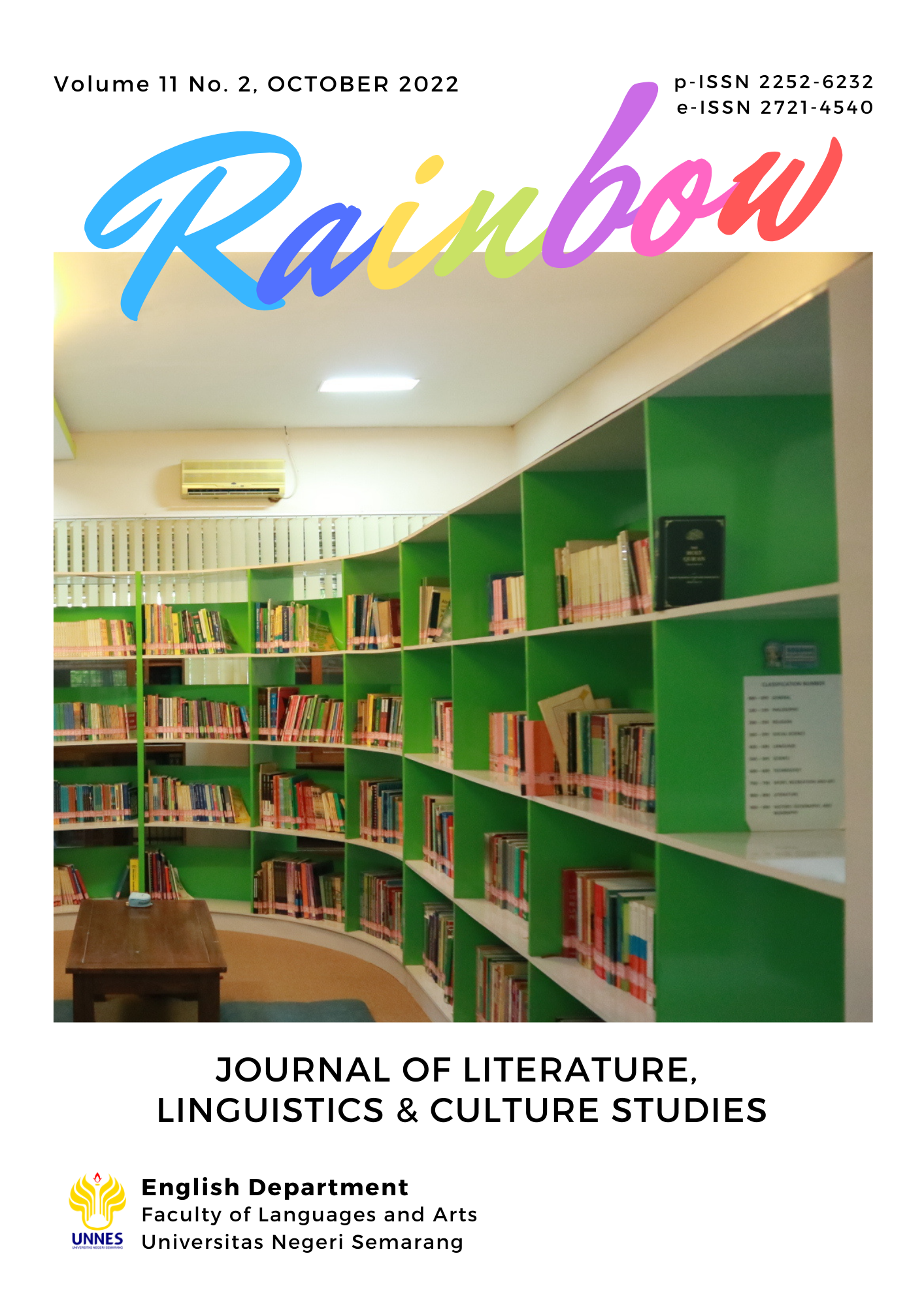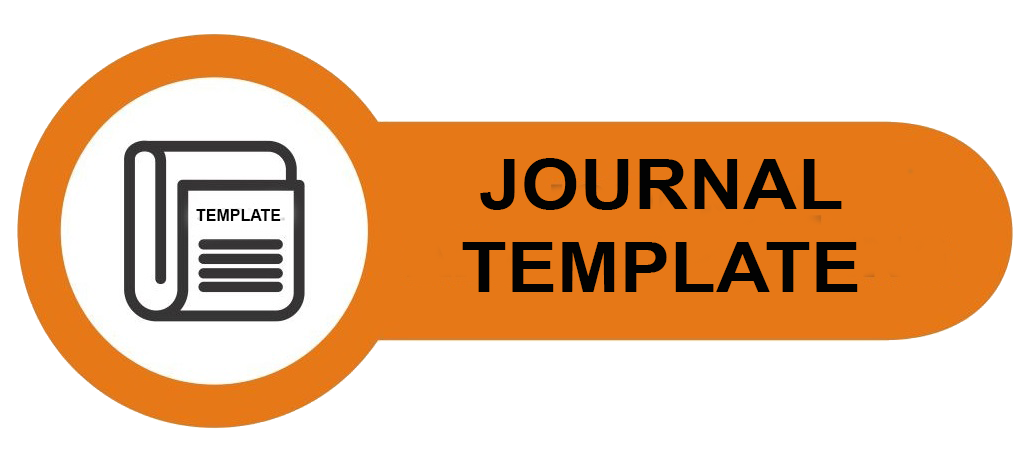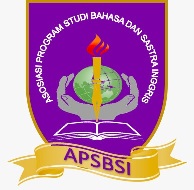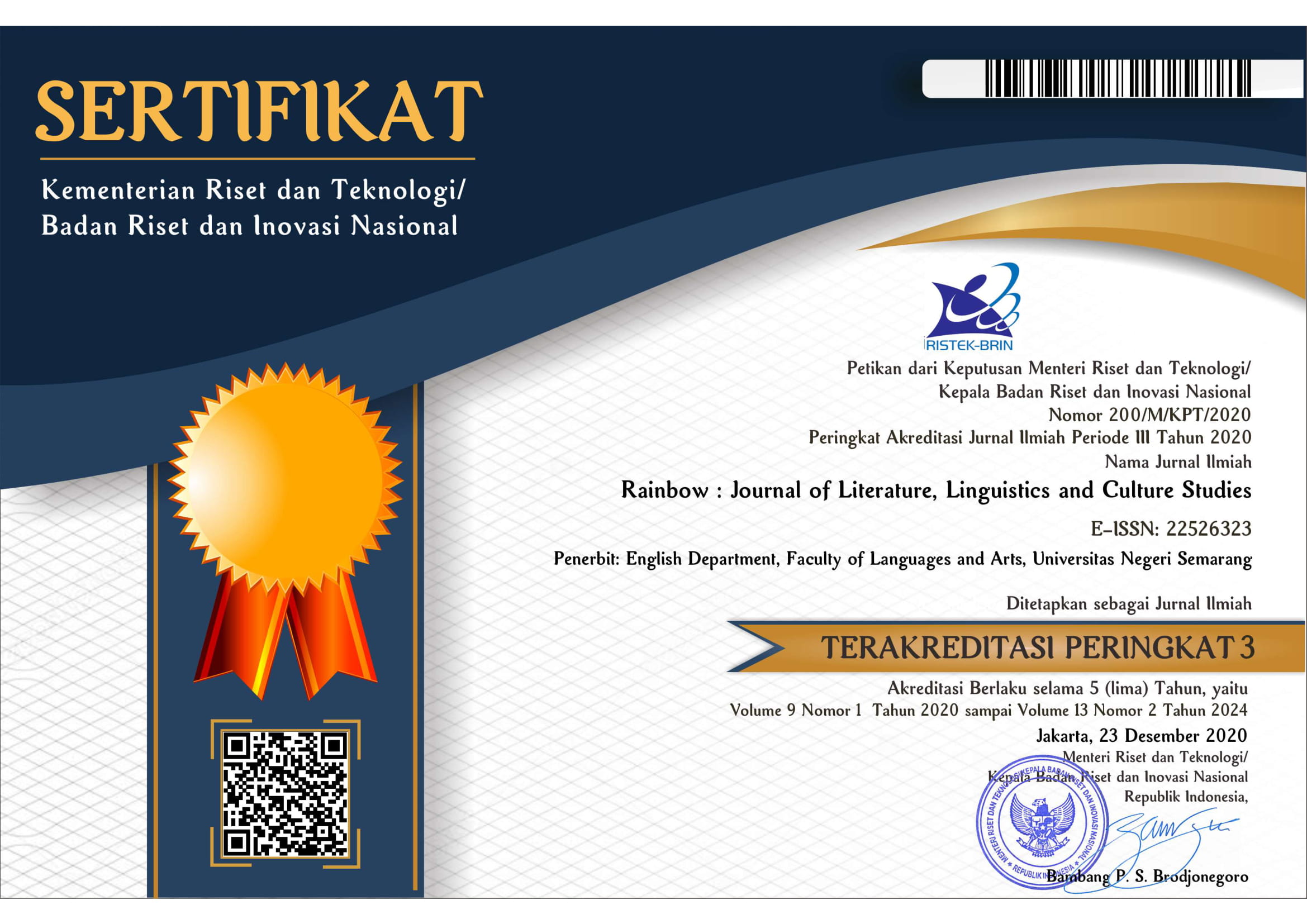The representation of Islamic value in government-mandated English language textbook: A critical discourse analysis
Abstract
There is a vast amount of English for foreign language (EFL) textbook evaluation studies analyzing multi-dimensional values around the world. However, only a limited number of literature analyzes the Islamic value in EFL Textbooks, especially in Indonesia. To fill this glaring gap, the present critical discourse study aimed to investigate the intrinsic Islamic value contained in Indonesia's government-mandated English textbook for secondary high school students. Halliday’s systemic functional analysis and Kress and Van Leeuwen's visual grammar theory were then conducted to understand, analyze, and explain the content and the picture in the textbook respectively. Compassionate, respect, and care for life in all its forms; solidarity and conflict avoidance; and tolerance for cultures of the different ethnic and religious groups were found to be the major themes of Islamic values emerge from the textbook. Finally, conclusions, limitations, and recommendations were then discussed.
Copyright (c) 2022 Baihaqi Zakaria Muslim, Dian Natasya Putri, Siti Athur Rizqoh, Dihliza Basya

This work is licensed under a Creative Commons Attribution 4.0 International License.







